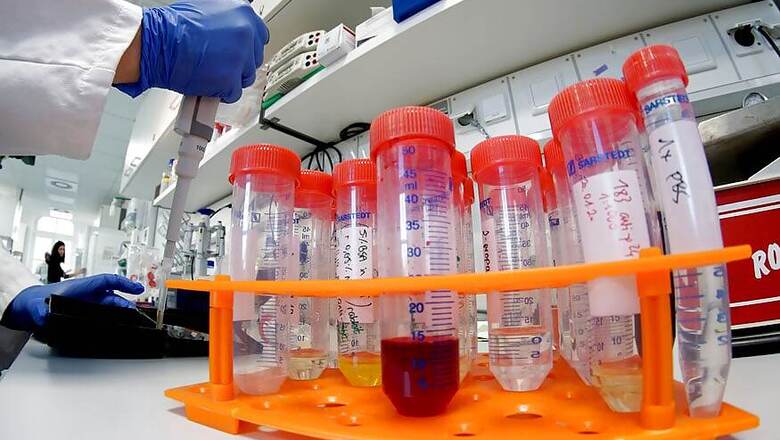
views
An outbreak of a deadly viral infection in China's Wuhan has taken over a hundred lives and is rapidly spreading sending tremours across the globe. The SARS-like novel coronavirus (2019-nCoV) so far has taken 170 lives in China as foreign evacuees from the worst-hit region begin returning home under close observation and world health officials expressed “great concern” that the disease is starting to spread between people outside of China. As of January 30, the figures cover the previous 24 hours and represent an increase of 38 deaths and 1,737 cases for a total of 7,711.
Coronaviruses cause illness ranging from the common cold to more severe diseases such as Middle East Respiratory Syndrome (MERS)-CoV and Severe Acute Respiratory Syndrome(SARS-CoV).
What is coronavirus?
Coronaviruses are a large group of viruses common among animals. According to the US Centers for Disease Control and Prevention, they are zoonotic or they can be transmitted from animals to humans. Scientist Leo Poon, who first decoded the virus, is of the opinion that it started in an animal and later spread to humans.
Where did coronavirus originate?
It originated from the Huanan Seafood Wholesale Market in Wuhan, a city with a population of more than 11 million. Wuhan is about 650 miles south of Beijing. Varied fish along with other animal meats are available in the market.
Symptoms
Similar to the common cold, Coronavirus can make you sick with a mild to moderate respiratory tract illness. Fever, cough and difficulty in breathing are the common symptoms.
The Health Ministry has issued an advisory on the precautions that one can take to prevent infection:
— If you have recently travelled to China (within last 14 days) or had possible contact with an nCoVinfected person, it is advised to:
— Stay in home isolation for 14 days after your return
— Sleep in a separate room
— Limit contact with other family members and avoid visitors
— Cover nose and mouth when coughing and sneezing
— Avoid close contact with anyone with cold or flu-like symptoms (maintain a distance of at least 1 meter from any individual)
Everyone at home should maintain hand hygiene at all times and wash hands:
— After sneezing or coughing
— When caring for sick
— Before, during and after you prepare food
—Before eating
— After toilet use
— When hands are dirty
— After handling animals or animal waste
In case you develop fever, cough or difficulty in breathing anytime within 28 days of return from China:
— Call at Ministry of Health, Govt. of India’s control room no +91-11-2397 8046 for further information
— Wear a mask immediately and report to nearest medical facility as advised
— Do not panic
Treatment for coronavirus
There is no specific treatment for it. If one is suffering from fever-like symptoms, washing hands regularly, not touching eyes and covering the mouth when you sneeze or cough is advisable.
Consuming fluids and taking rest is important. If your symptoms feel worse than a standard cold, consult your doctor.
How can you prevent it?
There is no vaccine developed to protect against this family of viruses yet.
What is India doing?
India has issued a travel advisory asking passengers returning from China to report to health authorities if they feel sick. Thermal screening of flyers from China will be carried out at seven Indian airports — Delhi, Mumbai, Bengaluru, Chennai, Hyderabad, Kolkata and Cochin.
Follow News18 Lifestyle for more

















Comments
0 comment